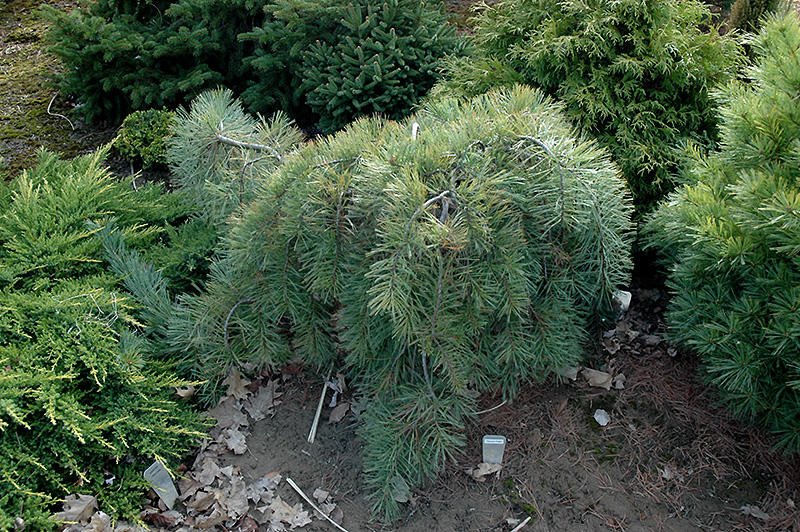Weeping Western White Pine
Pinus monticola 'Pendula'
Height: 4 feet
Spread: 4 feet
Sunlight:
![]()
Hardiness Zone: 4
Description:
A rare, weeping variety with dense branching and soft long blue-green needles; can be trained to a specific height when young, then allowed to cascade to the ground; a beautiful accent plant for the home landscape
Ornamental Features
Weeping Western White Pine is a dwarf conifer which is primarily valued in the landscape or garden for its highly ornamental weeping form. It has attractive bluish-green evergreen foliage. The needles are highly ornamental and remain bluish-green throughout the winter.
Landscape Attributes
Weeping Western White Pine is a multi-stemmed evergreen shrub with a rounded form and gracefully weeping branches. Its relatively fine texture sets it apart from other landscape plants with less refined foliage.
This is a relatively low maintenance shrub. When pruning is necessary, it is recommended to only trim back the new growth of the current season, other than to remove any dieback. It has no significant negative characteristics.
Weeping Western White Pine is recommended for the following landscape applications;
- Accent
- Mass Planting
- Rock/Alpine Gardens
- General Garden Use
- Groundcover
Planting & Growing
Weeping Western White Pine will grow to be about 4 feet tall at maturity, with a spread of 4 feet. It has a low canopy. It grows at a slow rate, and under ideal conditions can be expected to live for 80 years or more.
This shrub should only be grown in full sunlight. It prefers dry to average moisture levels with very well-drained soil, and will often die in standing water. It is considered to be drought-tolerant, and thus makes an ideal choice for xeriscaping or the moisture-conserving landscape. It is not particular as to soil type or pH. It is highly tolerant of urban pollution and will even thrive in inner city environments. This is a selection of a native North American species.

